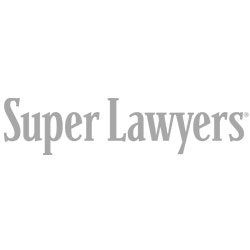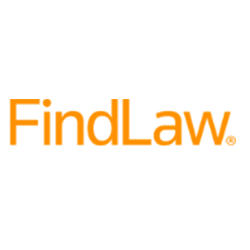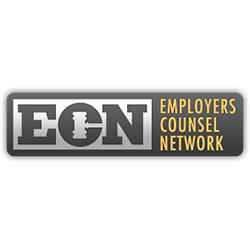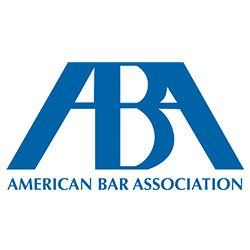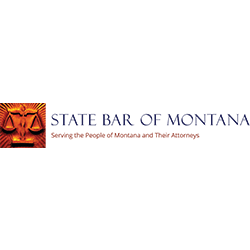Healthcare & Medical Malpractice Attorney in Billings, MT
Having a medical procedure, no matter how complex or straightforward, is an emotionally charged event. Patients and their family members place an immense amount of trust in the doctor and medical staff that the outcome will be positive. If you or a loved one suffered catastrophic consequences due to a health care provider’s negligence, a medical malpractice attorney at RMK Law could help you understand your options and take action.
According to at least some reports, healthcare is the largest employing industry in Montana and there is no doubt that most of Montana’s major cities have significant medical centers. For example, Billings has the largest medical corridor in a nearly 500-mile radius and serves as the medical hub for two-thirds of the state. Combined with the increased demand for healthcare as the population ages, Montana’s relatively large healthcare industry inevitably leads to disputes.
Why Choose RMK Law Firm
Healthcare law is often far more nuanced than fighting about whether a doctor met the appropriate standard of care. In addition to medical malpractice, legal issues ranging from compliance with complex regulatory requirements, HIPAA privacy issues, fraud, prescription drug and FDA issues, insurance, and patient and elder abuse.
Healthcare Attorneys
Our attorneys have a wide range of healthcare-related experience involving both medical malpractice and other issues:
- A medical malpractice, negligence, and wrongful death case involving an independent diagnostic testing facility.
- A medical malpractice case involving the death of a young mother several weeks after giving birth.
- A Montana Supreme Court appeal about whether the Health Care Quality Improvement Act precluded a physician from obtaining an injunction to preclude a hospital from reporting a suspension the physician contended was wrongful.
- A malpractice and negligence case against both a hospital and memory care facility involving elder abuse after a WWII veteran broke his hip and subsequently died.
- A case involving allegations of HIPAA violations by a hospital.
- Numerous cases involving medical malpractice claims in front of the Montana Medical Legal Panel.
Elder Abuse Attorneys
Abuse can happen to anyone, anywhere. When adults over the age of 60 experience neglect, abuse, or financial exploitation, it becomes elder abuse. It can occur in a nursing home, assisted living facility, the older person’s house, or a family member’s home. The mistreatment of senior-aged adults can be by health care providers, caregivers, family members, strangers, or friends.
If a loved one suffered from abuse or neglect while in someone else’s care, a healthcare attorney at RMK can help you understand your options and navigate the legal system to take action.
Medical Error Statistics
As many as 120,000 deaths occur as a result of medical errors each year. These errors have surpassed strokes, diabetes, and Alzheimer’s, becoming the third-leading cause of death in the United States. Medical errors can occur in virtually any healthcare setting, such as:
- Clinics
- Surgical centers
- Nursing homes
- Hospitals
- Pharmacies
- Medical offices
- Patient homes
Many errors result from issues created by the complex nature of the American health care system. For example, nearly one in seven Medicare patients in hospitals are victims of medical errors. Medical malpractice occurs when a doctor or other medical professional fails to perform their medical duty competently and harms a patient. Staffing patterns and workflow may not lead directly to medical errors, but they could put health care workers in situations where errors are more likely to occur.
Medical Malpractice FAQs
Medical malpractice claims are typically more complex than
traditional personal injury cases, both substantially and procedurally.
At RMK Law medical malpractice lawyer can review your case and explore the legal nuances you must address. Here are some of the most frequently asked questions asked of our legal team.
What are some examples of medical malpractice?
Misdiagnosis is one of the most common types of malpractice. It occurs when a doctor either does not diagnose a patient promptly or diagnoses a patient with the wrong illness. Surgical error is another situation that falls under malpractice. These errors could include:
- Problems with surgical procedures
- Improperly administering or monitoring anesthesia
- Perforating organs
- Leaving instruments or other foreign objects in a patient’s body
- Injuries that occur at or near the time of birth due
What is the standard of care in medical malpractice cases?
In ordinary personal injury cases, the standard of care is based on what a reasonable person would do. However, medical malpractice cases are specific to the professional context. The medical professional must act as another health care provider in the same specialty they would act if they were treating a patient with similar health issues. Expert testimony from a person in the same or similar specialty as the defendant helps the judge and jury understand the standard of care expectations.
Who can I sue in a medical malpractice claim?
The defendant is typically a doctor, but you can sue any individual who committed the malpractice, such as an anesthesiologist, nurse, or other health care provider. Depending on the circumstances, the lawsuit may name several individuals who contributed to the error. Although patients can generally not sue the hospital for malpractice, some exceptions may allow you to include the entity in the legal action.
What are the requirements for a medical malpractice claim?
For medical malpractice to be considered, you must prove that the healthcare provider did not provide the proper care standard. If you feel the medical professional was negligent, you must prove that you were harmed as a result of the negligence and that it caused considerable damage.
Elder Abuse Statistics
Approximately one in ten adults aged 60 and older have experienced some form of elder abuse, and only one in 14 reports it. Financial exploitation is self-reported more often than other types of abuse, but it likely occurs more often than it is reported. Individuals who experience physical, sexual, and emotional abuse or neglect have a higher risk of death than those who have not been mistreated.
Types of Elder Abuse
Elder abuse refers to intentional, negligent, or knowing acts that cause harm or significant risk of injury to vulnerable older adults. Although laws vary, every state has laws pertaining to elder abuse in its various forms.
Elder neglect
When a family or facility fails in their obligation to care for an elderly adult, it constitutes elder neglect. It can be intentional or unintentional and depends on the unique circumstances of each situation. Neglect can result from ignorance or denial that the elderly charge requires more care than is given. Examples include not giving them enough food or water, funds to pay for bills, housing or clothing, and not helping them dress, bathe, or otherwise care for themselves. Signs of elder neglect include:
- Sudden weight loss
- Lack of appetite
- Bedsores
- Messy or unclean conditions
- Skin rashes
- Missing items such as hearing aids, eyeglasses, dentures, or walkers
Intentional abandonment by a caregiver is frequently paired with neglect. It can occur when a caretaker leaves the elder in their charge with another person or at a facility without agreement from family members. If you see signs that a loved one may be suffering from neglect, an elderly abuse attorney at RMK Law can help you determine if you have a case and discuss the best course of action.
Emotional and Psychological Abuse
An action that hurts a person emotionally, such as threatening them, calling them names, yelling at them, or talking down to them, is deemed emotional or psychological abuse. It also encompasses situations in which a person controls what the elderly person does, who they see, where they go, and who ignore them. Indications that your loved one experiences this type of abuse include:
- Behavior changes you can’t explain
- Sudden withdrawal or acting afraid
- Rocking back and forth or mumbling to themselves uncharacteristically
- Trouble sleeping
- Depression and loss of interest in activities they enjoy
- Low self-esteem
Any action that intentionally causes distress or anguish through verbal or non-verbal acts may be considered emotional abuse.
Financial Abuse or Exploitation
Improper or illegal use of an older adult’s assets, property, or funds is financial abuse. Behavior consistent with this type of abuse includes forcing the victim to sign a will, power of attorney, or deed naming the perpetrator as a beneficiary. Additional types of financial exploitation include the following:
- Forging a signature on a check
- Using possessions without the victim’s permission
- Perpetrating fraud, cons, or telemarketing scams with the intent to gain trust and take from the older adult
Signs that a loved one may be the victim of financial abuse include:
- Substandard of care despite the older adult’s ability to pay for services
- Unexplained ATM withdrawals that the account holder could not have made
- Viewing a new person as their new best friend
- Unpaid bills
- Canceled checks or bank statement going to the perpetrator’s address
- Large bank transfers with no explanation
People or groups who ask for money on behalf of fake charities and overcharging for medical care, home repairs, or services that are never received are also financial exploitation.
Physical Abuse
Physical abuse is the intentional use of force, inflicting physical pain, impairment, or death. It can include hitting, slapping or pushing as well. Some signs of physical abuse include:
- Burns
- Broken Bones
- Bruises
- Dislocated joints
- Sudden unexplained hair loss
- Signs of self-treated injuries
- Sprains
- Tooth loss
If you have a loved one who has become withdrawn from their everyday activities or shows discomfort around specific individuals, they may be exhibiting signs of physical abuse. Unexplained injuries, a hospitalization pattern for similar injuries, or making trips to different emergency rooms are also signs of abuse.
Sexual Abuse
When older adults are forced to have any kind of sexual interaction, it is deemed elder sexual abuse. This includes those who have conditions such as Alzheimer’s, dementia, or other disabilities that prevent them from consenting. Signs that could indicate elder sexual abuse include:
- Emotional withdrawal
- New sexually transmitted diseases
- Bruised inner thighs or genitals
- Problems sitting or walking
- Pelvic injuries
- Bleeding from genitals or anus
- Panic attacks
Contact with an elderly adult without their consent may involve physical acts. However, it can also include forcing the person to watch sex acts, view pornography, or undressing in front of the abuser. An elder abuse lawyer from RMK Law can help you get an investigation started. If there is proof of elder abuse by a caregiver at a nursing home or assisted living facility, the perpetrator may face criminal charges and pay a settlement for damages.
Contact a Montana Medical Malpractice Lawyer
Contact us today or call (406) 601-1400 to schedule a consultation if you or a loved one were injured due to a healthcare provider’s negligence. Our experienced medical malpractice team can ensure your situation receives the care and attention it deserves. We will evaluate your case and determine what the next steps should be.


